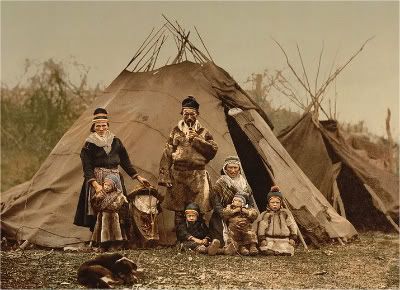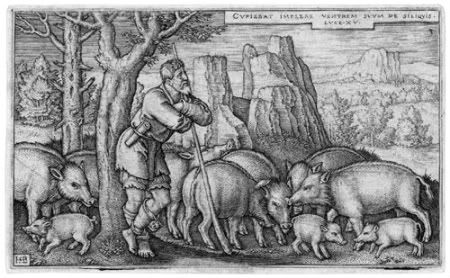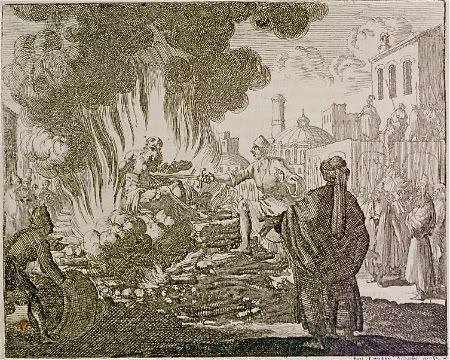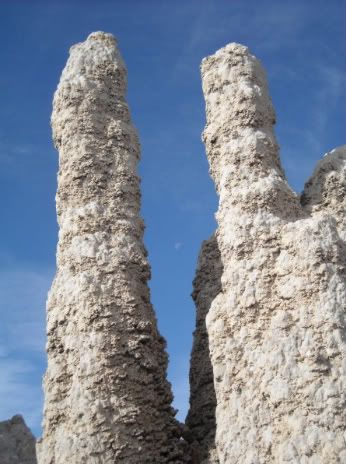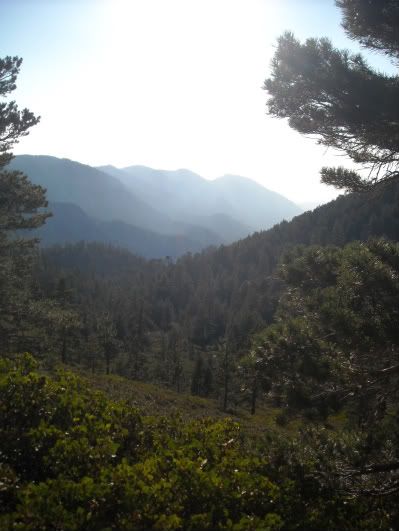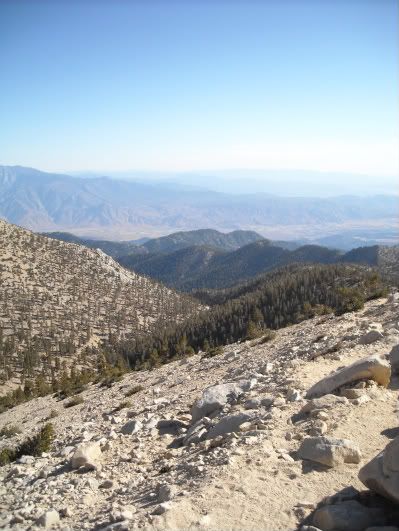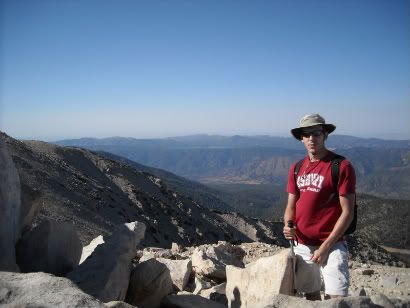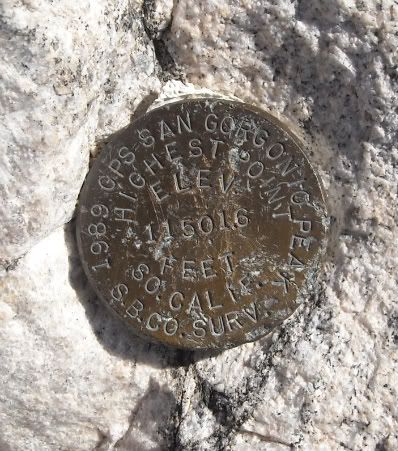Of all my reading on the Laestadian revival one character has intrigued me more than any other. Laestadius himself is a very interesting man, a scientist, a seminary trained Lutheran pastor and ultimately a man whom God would use to shake many in Lapland out of their spiritual slumber and death to repentance and life in Christ. Raattamaa is an interesting character, the man who carried the reigns of the revival from Laestadius and who held the revival together until his death. And there are numerous others such as John Lumijarvi that I would like to know more about. But as the title of this post suggests, the one by whom I've been the most intrigued is the Sami or Lapp woman named Mary or Maria. In Finnish she's known as Lapin Maija. Many believe that her real name was Milla Clementsdotter. It is of this woman that Laestadius wrote:
In the winter of 1844 I came to the Åsele region of Lapland in the capacity of inspector. I met a few Readers of the more moderate type there. Among them was a Sami girl named Maria who, after hearing my sermon from the altar, opened her whole heart to me. This simple girl had experienced the order of salvation in a way that was totally new to me. She had traveled far and wide, seeking light for her darkness. In her journeys she had at last encountered Pastor Brandell in Nora, and after she opened up her heart to him, Brandell released Maria from her doubts. Through him, Maria came to a living faith. And I thought to myself, "Here is a Mary who sits at the feet of Jesus. For the first time now," I thought, "I can see the way that leads to life; it was hidden from me until I had the privilege of speaking with Maria." Her simple account of her pilgrimage and experiences made such a deep impression on my heart that I, too, saw the light; that evening spent with Maria, I experienced a foretaste of the joy of heaven. But the pastors of Åsele did not understand Maria's heart, and even Maria recognized that they were not of this sheepfold. I shall remember the poor Maria as long as I live, and I hope to meet her in the brighter world beyond the grave.
This woman, who had been such a mystery to me, was part of a group which also had a mysterious title, the Readers. Until I recently acquired Carl A. Kulla's book, The Journey of an Immigrant Awakening Movement in America, I had a sense of who the Readers of Lapland were but this book has helped to clarify things. Kulla writes, "Pietism moved quickly from Germany to Sweden and the Baltic countries, where it met with strong opposition from the established church. . . Although Pietists remained within the state churches of their respective countries, they were a living church within the outward church, which caused Pietism to be in tension with the authorities." It seems then that the situation in the Scandinavian countries and Finland was not unlike the situation in the Church of England as the Methodist revival broke out in Britain and raised the ire of bishops and priests there. And as with the Methodist revival where John Wesley was converted to Christ under the tutelage of Moravians, it was also the Moravians who came to Scandinavia with the gospel. Kulla writes, "Already in 1731, and again in 1734, Moravian missionaries were spreading their influence throughout the land. From 1750 to the end of the century they permeated the religious life of Sweden." It was the spiritual descendants of these Moravian missionaries who were the Readers of Laestadius' time. Kulla writes, "Pietism was spread largely by the written word, the Bible, Luther's writings, and devotional writings from Lutheran heritage. Therefore the movement in Sweden received the name 'Lasare' which means 'Readers,' which name then became the general designation of all the awakenings."
With the presence of Christians like the Readers and also much depravity often seen in drunkenness and exploitation of the Sami, Mary was born into a Lapland of both light and much darkness. If her identity as Milla Clementsdotter is correct then it seems that early on at least, Mary experienced mostly the darkness of Lapland. But God by His grace and in His sovereignty would lead Mary to a living faith which would eventually be shared with Lars Levi Laestadius and ultimately millions of other "thirsty whelps of grace."
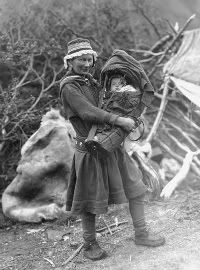
An account of the life of Milla Clementsdotter is found in an 1840 issue of the Swedish magazine, Nordisk Kyrkotidning. According to this account, Milla or Mary, which is a variant of that name, was born in Föllinge, Lapland on November 1st, 1815, although according to church records she was born on this date in 1813. Her father had lost his property because of his drunkenness and died after being assaulted when Mary was a child. Her mother remarried and Mary accompanied her mother and stepfather in their travels around Lapland. At the age of six, Mary was left with a farming family who agreed to teach her to read. Her time with this family seems to have been unhappy as she was harshly treated and was not educated well in reading as her mother had been promised. She seems to have moved from family to family as an orphan and during this time memorized the Lutheran catechism and took her first communion. Also during this time Mary witnessed much drunkenness in her caretakers and the sadness that this vice brought with it. After years of moving from family to family, including a time of working as a reindeer-herder, Mary's parents agreed to give her in marriage to a suitor many years her senior who was not known for his sobriety or Christianity. Mary successfully avoided the pursuit of this man and met some Sami "boys," as the biography calls them, who had been convicted of their sin and had heard the true gospel preached by Pastor Brandell of Nora. Of these boys the author writes, "even if their knowledge was not spectacular, their earnestness over the salvation of the soul was indeed all the greater. . . They were called madmen and fools by the apathetic people around them, but their admonitions, their mild, humble conduct, their devotion in prayer, to which they also exhorted her and with which she was so pleased, drew her to them and were a true joy to her in all her inner need and her present external distress."
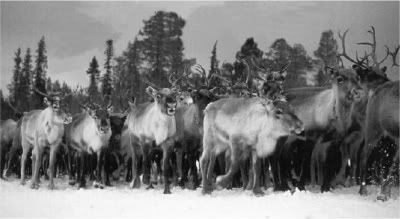
Mary eventually came to live again with her mother and stepfather who had become "fisher-Lapps," along with her other siblings. During this time she was still troubled in conscience and had a dream of a group of people leaving a church, entering a cottage where there was merry-making and then being dragged to hell, chained together. In this dream Mary believed that she was warned by God of hell and admonished to carry this warning to her family. As would be expected, with her troubled conscience, Mary desired all the more to travel to Nora to hear the gospel preached by Pastor Brandell. Eventually Mary once again left her family to seek wages to send home. During these wanderings, when Mary was probably in her 20's, she fell very sick and was deathly ill for five weeks. After five weeks of bed-rest with a family who took her in, she eventually tried to hitch a ride to Nora to hear the gospel preached with a group of young people who were going to a dance. She was abandoned by this group and left stranded on a forest road on a winter night. Aila Foltz does a good job of describing this occurrence in the book A Godly Heritage, Foltz writes:
Falling snowflakes covered her as she lay unconscious on the road. It was Christmas time, and nobody was abroad at that hour in this sparsely settled region. A short distance from where Milla lay was an isolated farm. The farmer's son had gone visiting with the intention of returning the following day, but he was so overcome with anxiety about his family that he hitched up his sleigh and left for home the same evening. After traveling some distance, the horse shied and stopped abruptly. When the young man alighted to investigate, he found the Sami girl lying in the road covered with snow. He picked her up, laid her in his sleigh and took her home. In the warm house, she recovered enough to continue her journey the next day.
Mary eventually made it to Sollefteå where she met a Pastor Berglund, who had experienced living faith in Jesus Christ. Pastor Berglund encourged her to go on to Nora to hear Brandell preach the Word of God. Although the biography in Nordisk Kyrkotidning never tells of Mary finally making it to Nora, she must have eventually arrived there as Laestadius speaks of her hearing Pastor Brandell in Nora in his account of meeting her. It was in Nora where according to Laestadius, "Brandell had released her from her doubts and the girl was led by him to a living faith."
Not much is known about Mary after her fateful meeting with Laestadius. Foltz writes, "according to church records, she married Thomas Palsson, a Sami farmhand from Frostviken, a few years before she met Laestadius, and she gave birth to a daughter a few years later."
The account of Mary's life from Nordisk Kyrkotidning raises for me more questions than it answers. But one thing I am convinced of is that this was a woman of God in whose heart a wonderful work of grace had been done. Of his meeting with Mary, Laestadius wrote that she had opened her "whole heart" to him and, "I thought, 'I can see the way that leads to life.'" If opening one's heart to others leads to them seeing the way of repentance and faith in Christ I think it is obvious that it is Christ Himself who inhabits that heart.
I've been very happy to find books and websites that give an incomplete outline of Mary's life and the Readers but I would like to learn more about both. Although there are other resources out there I thought that this blog post might be interesting to anyone with a similar interest in the Laestadian revival or Mary of Lapland.
